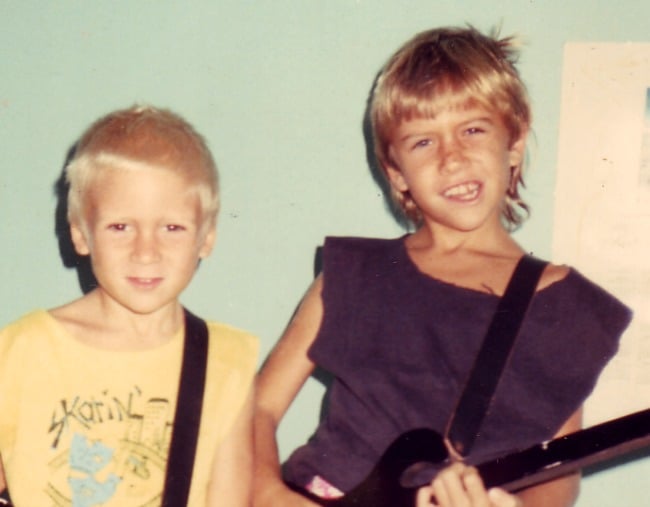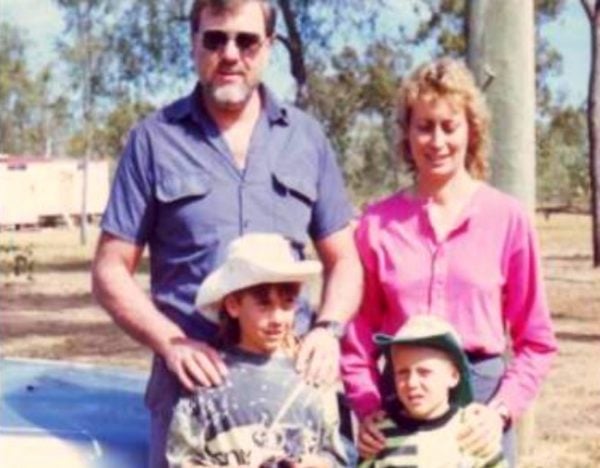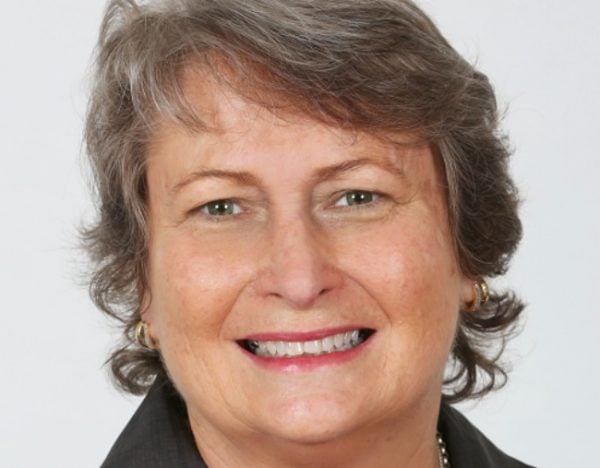
Cairns mum Anne Russell had never even held a baby in her arms until her first son was born. But from the very beginning, instinct told her there was something different about her boy.
As a child, Mick, now 37, was a tiny baby who cried non-stop, for months. He was developmentally delayed and while his temperament grew calmer by his teen years, he was hamstrung by physical issues: he had epilepsy, his teeth didn’t grow properly, he had a tumour on his jaw, and he was far smaller than any of his peers.
Ms Russell’s concerns were intensified after the birth of Mick’s little brother Seth three years later.
“He was a big strapping boy, and his behaviour was off the planet,” she told Mamamia. “It didn’t make sense.”
Seth had violent psychotic episodes, he left school at age 14 after a number of suspensions, he had attempted to take his own life several times, and he couldn’t hold down a part-time job – usually because he would do something so bewildering, like stealing scratch-its from the news agency.
Ms Russell, 63, felt helpless. Her sons weren’t responding to any of the traditional parenting strategies she and her husband Don tried to implement.
“I was constantly failing at everything. I can’t describe the feeling of failure and chronic stress. I couldn’t take them to the supermarket, to friends’ places. I was isolated,” she said.


